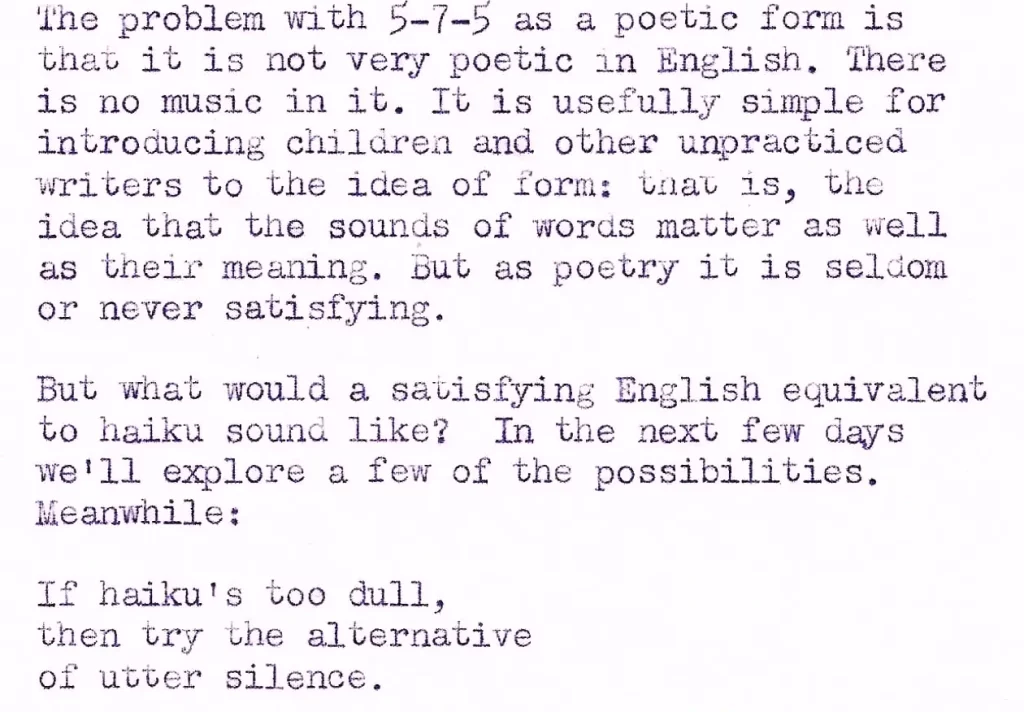


To make the text searchable, screen-readerable, and so on, it is transcribed below—once again by OCR without a single error. Typewriters are very good for OCR.
On Form in Haiku
You may be surprised to learn that Dr. Boli finds himself in sympathy with the “no 5-7-5” party in much of what they say. Most haiku is dreadful dull stuff. Who would have thought so much boredom could be compressed into three very short lines?
Where the antiformalists go wrong is in supposing that this dullness is due to the constraints of form. It is not true that form prevents poets from saying interesting things. Haiku poets unconstrained by form are much more likely to be sententious dullards than poets who allow a form to shape the words they choose.
The reason most haiku is dull is because it is generally too short to be interesting. A good haiku makes a striking observation in a very few words. Striking observations that can be expressed in a very few words are rare. They are much rarer than haikus, at any rate.
So the answer to the dullness problem does not lie in telling people to give us their unmitigated thoughts without worrying about any considerations of form. The word for that is “tweet,” not “haiku,” and we have entirely too many tweets already.
There is something beautiful and fantastic about the idea of a society in which human thought is invariably so polished and sophisticated that contorting it into a form can only dull its luster. Perhaps some novelist in the fantasy genre could create that world for us. We do not live in that world at the present time, and in the world we do live in, form is the engine of thought. Perhaps that is not true for you; perhaps you are a genius for whom the first words that come to mind are always the best words. Good for you. For the rest of us, form is the only thing that can save us from dullness.
Even so simple a form as the 5-7-5 of haiku forces us to think about our words. Probably the first words that come to mind do not fit the form. This is where the true poet blesses the form instead of cursing it. Because those first words did not fit, we start looking for words that do fit. we start considering our words carefully. We find better words.
The problem with 5-7-5 as a poetic form is that it is not very poetic in English. There is no music in it. It is usefully simple for introducing children and other unpracticed writers to the idea of form: that is, the idea that the sounds of words matter as well as their meaning. But as poetry it is seldom or never satisfying.
But what would a satisfying English equivalent to haiku sound like? In the next few days we’ll explore a few of the possibilities. Meanwhile:
If haiku’s too dull,
then try the alternative
of utter silence.